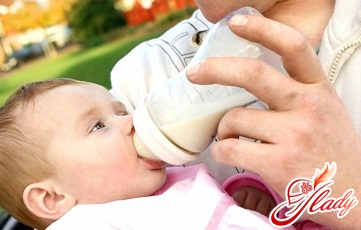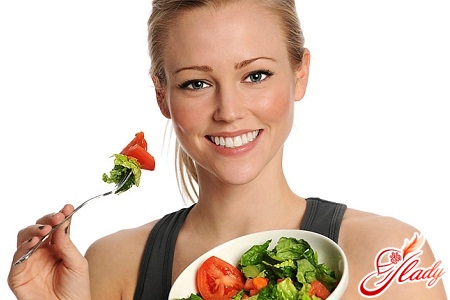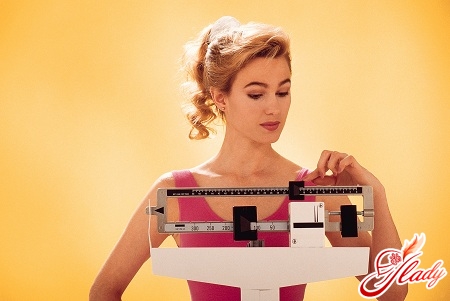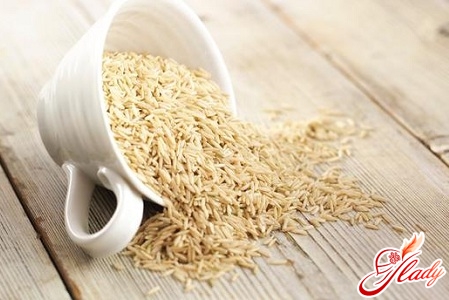 A proper diet is important not only for yourbeauty, it is the basis of health. It could be expressed by the formula "you can eat everything, but in small amounts", but things are not that simple. To avoid the most severe diets, which are a real stress for the body and disrupt metabolism, you need to listen to your body and its needs, and be able to eat according to your age and type of activity.
A proper diet is important not only for yourbeauty, it is the basis of health. It could be expressed by the formula "you can eat everything, but in small amounts", but things are not that simple. To avoid the most severe diets, which are a real stress for the body and disrupt metabolism, you need to listen to your body and its needs, and be able to eat according to your age and type of activity.
Think about your food
With age, the body's reactions change, so effectivemust be accompanied by physicalexercises, which are a necessary condition for your body to remain slim and strong for as long as possible. Indeed, starting from the age of 30, the metabolism undergoes changes, the digestion process is different (especially in women). Cells begin to secrete less digestive juices, digestion of food is slower and more difficult. Therefore, you should think about your diet, in particular limit the consumption of some high-calorie and difficult to digest foods, especially in the evening.
Breakfast
For those who exercise daily, special attentionAttention should be paid to the first meal of the day. Considering that the morning meal is the most important of the day, it is necessary to replenish your reserves of vitamins, minerals and slowly digestible carbohydrates. Breakfast can usually be started with a plate of whole grain cereal with honey and milk, followed by two slices of bread and three toasts spread with low-fat butter (regular butter: 10 g = 75 kcal, low-fat butter: 10 g = 40 kcal). Do not be afraid to eat several slices of bread every morning - no one has ever gained weight from bread, and the body really needs the slowly digestible carbohydrates and starch it contains. You can finish breakfast with 1-2 servings of yogurt made from whole milk, then wash it all down with a cup of coffee without sugar (more for taste reasons than for dietary reasons). Finally, a glass of fresh fruit juice (orange or grapefruit) gives you freshness and energy, and you can start your daily activities. Everyone should eat yogurt or cottage cheese, because regardless of physical effort, our body loses calcium. To make up for the lack of calcium, you can eat dairy products in the morning, at lunch, and (sometimes) in the evening. Low-fat and whole-milk yogurt have different calorie content (50 and 80 kcal per 125 g), but the calcium content is the same. Have a snack at 11 o'clock. Despite a full breakfast, sometimes you have to have a snack closer to midday. It is always advisable to have 1-2 energy bars with you, containing phosphorus, calcium and potassium.
Dinner and supper
During the day, you can eat fish, vegetables and dairy products. Such food, rich in dietary fiber, microelements and vitamins, protects them from heart disease, cancer and obesity!
- Give preference to fresh vegetables
You can start your lunch with a plate of raw vegetables:carrots, radishes, tomatoes, lettuce, green beans, broccoli (100 g = 26 kcal) and cabbage - with a little vinegar and seasoning. Then eat the fish and a side dish (rice, potatoes, lentils or pasta). You should not eat anything fried in oil or sour cream-based sauces. It is better to season the dishes with a little olive oil, orange juice and a variety of herbs that add flavor to even the strictest dishes. In our time, it cannot be said that healthy food is not tasty. Your task is to prepare the dishes correctly. Look at the vegetable counters in the supermarket - there you will find fresh basil, parsley, thyme, and allspice - Don't forget about spices. It is enough to generously sprinkle them on rice, tomatoes, fish and vegetables - and you will understand that mayonnaise (100 g = 710 kcal), fresh sour cream (100 g = 900 kcal) or Béarnaise sauce (100 g = 549 kcal) do not need to be added to all dishes!
- No to fast-digesting carbohydrates!
You can finish your lunch with a piece of cheese without bread andyogurt. It is better not to eat baked goods, since most flour products contain a lot of sugar and calories (a piece of apple pie = 200 kcal, choux pastry = 338 kcal). When you get used to eating yogurt, cottage cheese, coffee and tea without sugar, you will recognize the real taste of the products and will not want to take a step back. This is a good habit that will not require much effort from you. Come up with other such habits... If you want to exercise and work without feeling tired, you should consume slowly digestible carbohydrates - starchy foods that give energy. You will have time to digest them before the evening. Starch, like all slowly digestible carbohydrates, accumulates in the body, replenishing muscle glycogen reserves before large energy expenditures. If you consume starch in natural products, it will not lead to weight gain (100 g of regular pasta = 110 kcal, 100 g of Parmesan = 380 kcal). In the afternoon, eat 1-2 fruits, avoiding grapes (too sweet) and bananas (high-calorie). By the way, a banana is a great way to get a boost if you suddenly feel a loss of strength. Fresh fruits contain vitamin C, beta-carotene, fiber and mineral salts. They improve bowel function, helping to remove toxins from the body that could interfere with weight loss.
On what diet for weight loss should pay attention?
The nutrition principles described here provide only a general idea, but for those who have decided to seriously work on their figure,, which has many recipes and detaileddescription of each step. The diet was developed by an experienced nutritionist who spent many years perfecting it. This system is not complicated, but the results are positive, which is confirmed by numerous
specialists. An example of a balanced diet:
- Proteins - 12-15% of total caloric intake 100/125 g
- Milk, cheese, yogurt, other dairy products; red and white meat, sausages, poultry, game, offal, fish, eggs, crustaceans.
- Fats - 30-35% of total caloric intake 50/62 g
- Fats of animal origin (oil, fish oil); Fats of vegetable origin (sunflower, soybean, peanut butter).
- Carbohydrates - 50-60% of total caloric intake 100/125 g
- Raw fruits and vegetables; boiled fruits and vegetables; starchy products (cereals, legumes, bread, pasta, rice, potatoes, white beans); sugar (candy, chocolate, honey, sweet drinks).









